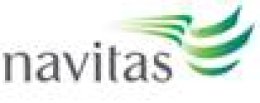Chris Kings-Lynne
2013-09-23 02:58:44 UTC
Hi Guys,
The dbcoltype() function returns code 47 for both varchar and datetimeoffset fields...is there any way to distinguish these - as they really are _rather_ different...
Regards,
Chris
Chris Kings-Lynne
Development Manager
[navitasemail]
Navitas Limited
Level 2, Kirin Centre
15 Ogilvie Road
Mount Pleasant WA 6153
P: +61 8 9314 9674
M: 0409 294 078 | W: www.navitas.com<http://www.navitas.com/>
E: Chris.Kings-Lynne at navitas.com<mailto:Chris.Kings-Lynne at navitas.com>
**** When replying to this message for the first time, leave the entire message intact - just hit reply, and add your comments at the top. ****
------------- DISCLAIMER -------------
This email contains confidential information intended for the use of the addressee named above. If you are not the intended recipient you are hereby notified that any use, dissemination, distribution or reproduction of this email or the contained information is strictly prohibited by law.
If you have received this email in error, please delete and destroy all copies and notify Navitas Limited by telephone on +61 8 9314 9674 or by replying to the sender. Except as required by law, Navitas Limited does not represent, warrant and/or guarantee that the integrity of this email has been maintained nor that the communication is free of errors, virus, interception or interference. Any views expressed in this message are those of the sender. You may not rely on this message as advice to act unless subsequently confirmed by fax or letter signed by an authorised representative of Navitas Limited.
P Consider the Environment before printing this email
-------------- next part --------------
A non-text attachment was scrubbed...
Name: image001.jpg
Type: image/jpeg
Size: 1605 bytes
Desc: image001.jpg
Url : Loading Image...
The dbcoltype() function returns code 47 for both varchar and datetimeoffset fields...is there any way to distinguish these - as they really are _rather_ different...
Regards,
Chris
Chris Kings-Lynne
Development Manager
[navitasemail]
Navitas Limited
Level 2, Kirin Centre
15 Ogilvie Road
Mount Pleasant WA 6153
P: +61 8 9314 9674
M: 0409 294 078 | W: www.navitas.com<http://www.navitas.com/>
E: Chris.Kings-Lynne at navitas.com<mailto:Chris.Kings-Lynne at navitas.com>
**** When replying to this message for the first time, leave the entire message intact - just hit reply, and add your comments at the top. ****
------------- DISCLAIMER -------------
This email contains confidential information intended for the use of the addressee named above. If you are not the intended recipient you are hereby notified that any use, dissemination, distribution or reproduction of this email or the contained information is strictly prohibited by law.
If you have received this email in error, please delete and destroy all copies and notify Navitas Limited by telephone on +61 8 9314 9674 or by replying to the sender. Except as required by law, Navitas Limited does not represent, warrant and/or guarantee that the integrity of this email has been maintained nor that the communication is free of errors, virus, interception or interference. Any views expressed in this message are those of the sender. You may not rely on this message as advice to act unless subsequently confirmed by fax or letter signed by an authorised representative of Navitas Limited.
P Consider the Environment before printing this email
-------------- next part --------------
A non-text attachment was scrubbed...
Name: image001.jpg
Type: image/jpeg
Size: 1605 bytes
Desc: image001.jpg
Url : Loading Image...